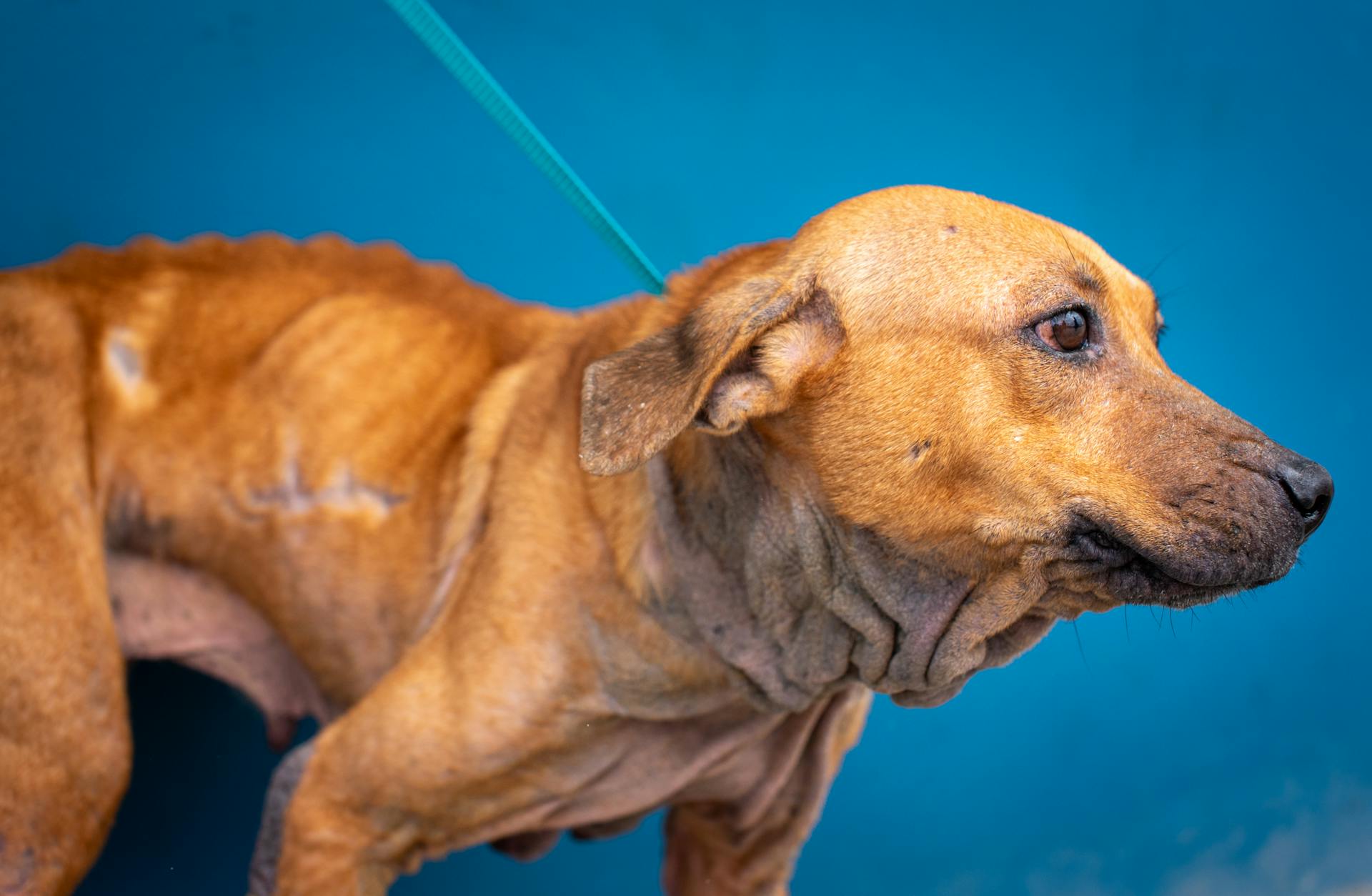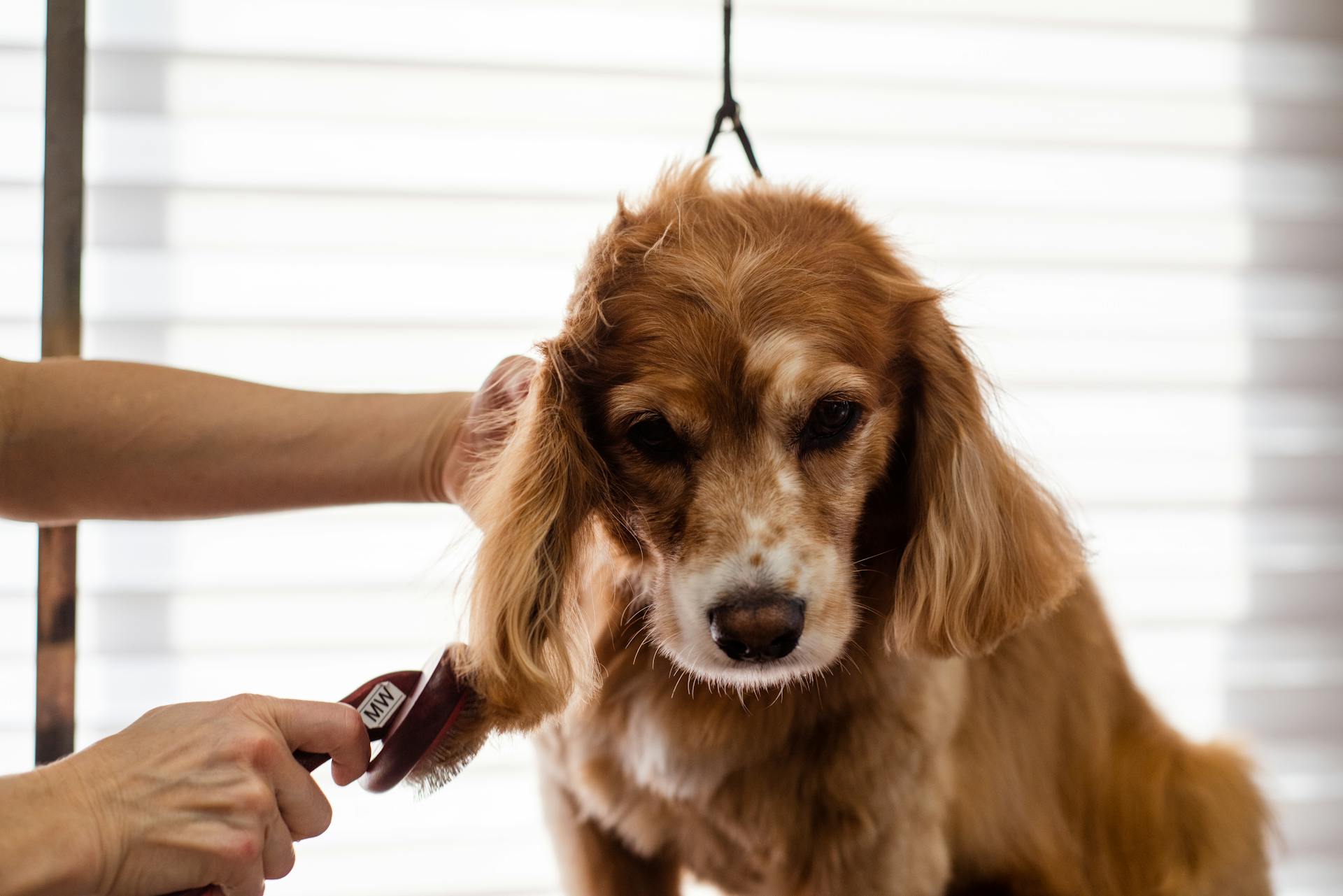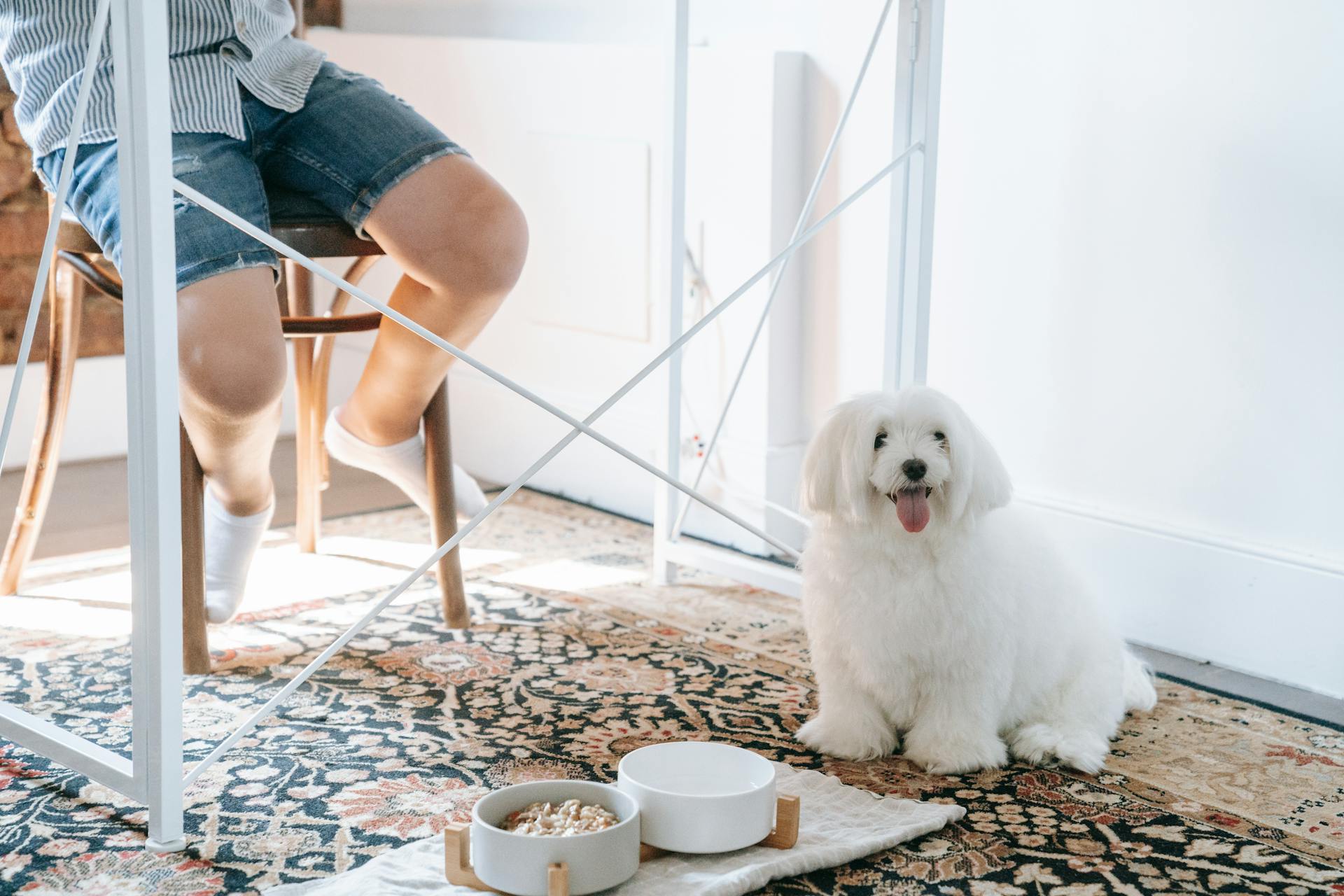
The Coton de Tulear is a small, fluffy dog that requires regular grooming to prevent matting and tangling of their fur. They need to be brushed daily.
They are a relatively low-maintenance breed when it comes to exercise, but they still need regular physical activity to stay happy and healthy. A daily walk and some playtime should suffice.
Coton de Tulears are known for their gentle and affectionate nature, making them a great companion for families with children.
History and Origins
The Coton de Tulear has a rich history that spans several hundred years. They likely originated in Madagascar, where they were brought by European sailors, possibly as pets or ratters on ships.
These little dogs quickly made themselves at home in Madagascar, with some becoming pets in the royal court and wealthy households, while others roamed the streets. Their sweet personalities made them a favorite among locals.
In the 1970s, a Frenchman visiting Madagascar brought some Cotons back to France and worked to establish them as a breed. This marked the beginning of their global popularity.
Today, the Coton de Tulear is recognized by several kennel clubs, including the United Kennel Club and Europe's Federation Cynologique Internationale.
Related reading: American Kennel Club Lancashire Heeler
Health and Care
Cotons de Tulear are generally a healthy breed, but like any dog, they can be prone to certain health issues. They have a life expectancy of 15-19 years.
Regular grooming is crucial to prevent tangled fur and knots, which can cause discomfort and skin problems. Brushing their hair once a day is recommended, with extra attention paid to areas like the neck, groin, and shoulders.
Some common health problems that can affect Cotons de Tulear include luxating patella, hip dysplasia, and progressive retinal atrophy. Regular veterinary check-ups and genetic testing can help identify these issues early on.
Here are some common health issues that can affect Cotons de Tulear:
- Luxating patella
- Hip dysplasia
- Progressive retinal atrophy
- Skin allergies
- Dental problems
- Ear infections
Overview
The Coton de Tulear is a small dog with a big personality. They typically weigh between 8-13 pounds.
These dogs require moderate exercise, which can be easily satisfied with short walks or playtime in a fenced yard. They're not excessive exercise needs make them a great choice for apartment dwellers or those with limited mobility.
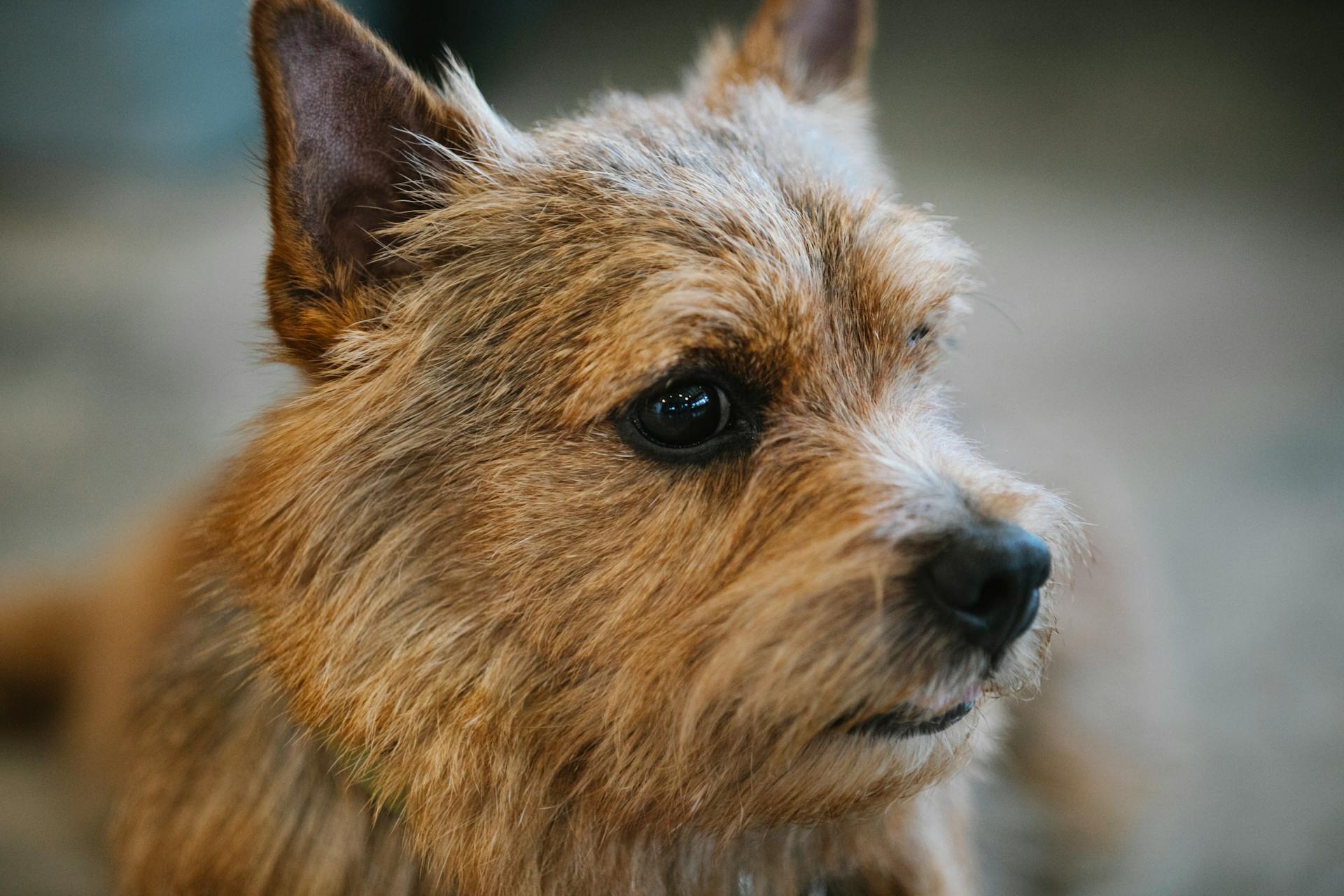
Their medium-length, soft coat is a joy to behold, but it does require daily brushing and combing to prevent matting. A good brushing session can strengthen your bond with your Coton and make it a joyful experience for both of you.
Cotons are generally easy to train, but they can be stubborn at times, especially around puberty. Consistent training and positive reinforcement can help overcome this challenge.
They're known for their happy personalities and love to spend time with their families. They're naturally affectionate and make great lap dogs.
Here are some key health concerns to be aware of:
- Skin allergies
- Ear infections
- Hip dysplasia
Regular grooming, including brushing and bathing as needed, can help prevent skin allergies and ear infections.
Health
Cotons are generally a healthy breed, but like any small dog, they can be prone to certain health issues. One common problem is luxating patella, where the kneecap slips out of place, causing lameness and discomfort.
Protecting your Coton from jumping on and off furniture while their joints develop is crucial to prevent this condition. Reputable breeders will provide health certifications for a puppy's parents, including OFA certification for knees, hips, elbows, and hearts.
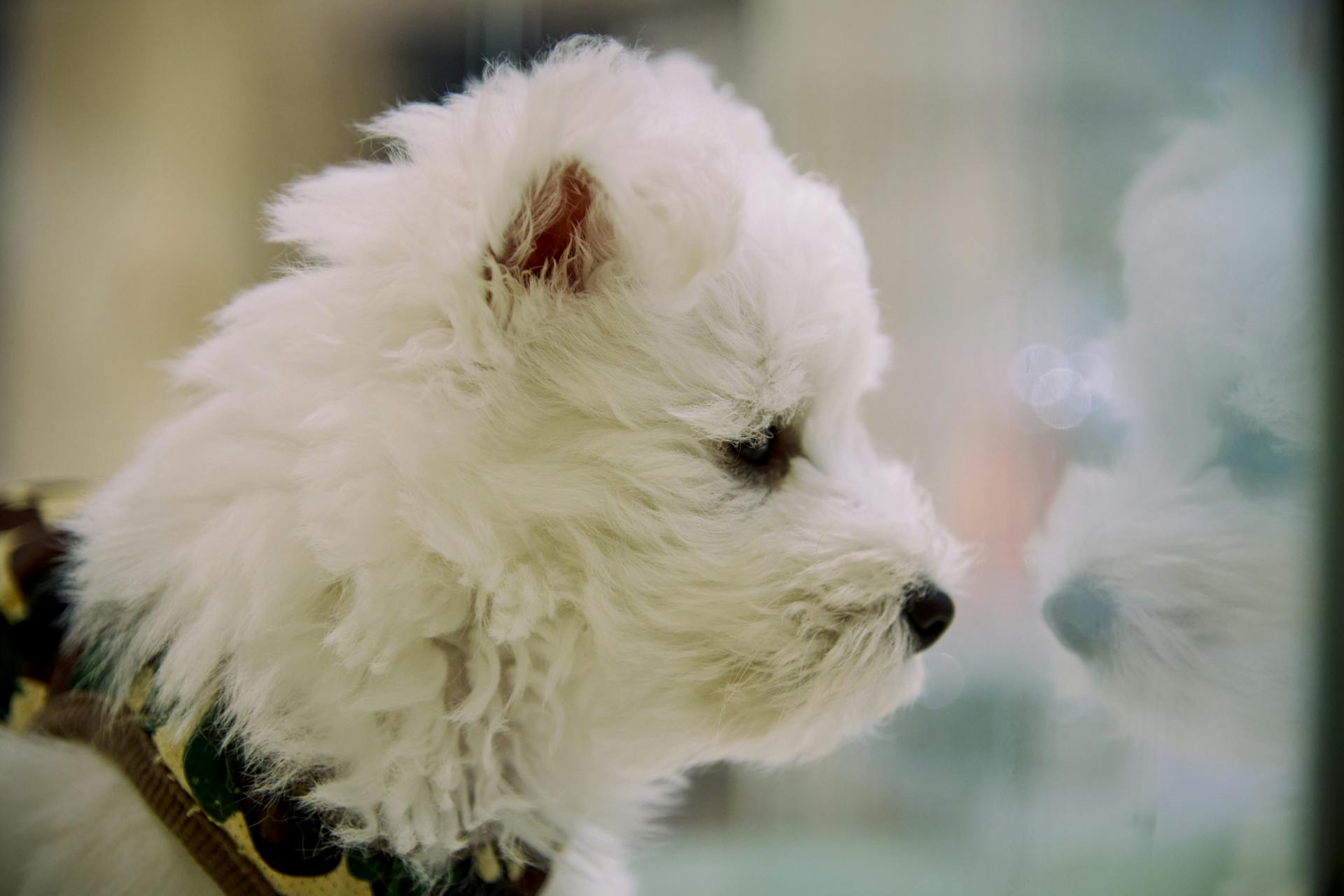
Hip dysplasia is another condition that can affect Cotons, where the thighbone doesn't fit snugly into the hip joint. This can lead to arthritis and mobility problems. Reputable breeders will not breed dogs with hip dysplasia.
Progressive Retinal Atrophy (PRA) is a hereditary degenerative eye disorder that can cause blindness. However, dogs can still live a full and happy life with this condition. Reputable breeders will have their dogs' eyes certified annually by a veterinary ophthalmologist.
Here are some common health issues that can affect Cotons:
- Luxating patella
- Hip dysplasia
- Progressive Retinal Atrophy (PRA)
- Heart problems
- Skin allergies
- Dental problems
- Ear infections
Regular veterinary check-ups and a healthy lifestyle can help prevent or manage these conditions.
Nutrition and Diet
Coton de Tulear's don't have any special dietary needs compared to other dogs, but they do require smaller kibble due to their tiny mouths.
Their diet should be tailored to their life stage, with puppies needing more protein and certain nutrients to support their development.
Puppies may need three or four meals a day to maintain stable blood sugar levels.
As they age, you may want to switch to senior dog food, which is formulated for problems that older dogs often experience, such as more protein or fewer calories.
These dogs are often pretty healthy, but they can develop certain health problems, requiring a specific diet according to your vet's instructions.
It's essential to keep an eye on your dog's body condition and adjust their food intake if they begin to gain or lose weight.
Divide their food into at least two meals a day and stick to a stable feeding schedule.
A recommended daily amount for an adult Coton de Tulear is 3/4 cup of high-quality dog food, divided into two meals.
The quality of dog food you buy makes a difference, and a highly active dog will need more than a couch potato dog.
You should be able to see a waist on your Coton de Tulear when looking down at them, and feel but not see their ribs without pressing hard when placing your hands on their back.
Discover more: When Can You Mate a Female Dog
Grooming and Appearance
The Coton de Tulear's coat is one of its most distinctive features, with a fluffy, cottony texture that's soft to the touch and long, typically reaching four inches in length by adulthood.
Brushing is essential to prevent mats and tangles, especially in areas like the ears, legs, and elbows. A pin brush with uncoated metal pins is ideal for the job, and using a spray conditioner as your brush will help minimize hair breakage.
Regular brushing will also reduce the need for baths, but when your Coton does need a bath, use a whitening shampoo to keep its coat looking its best. Be sure to pat your Coton dry and damp instead of rubbing it with a towel to prevent knotting.
Daily brushing is recommended to prevent tangled fur and knots, with extra attention paid to areas like the neck, groin, and shoulders where the coat tends to get tangled more easily.
The Versatile Dog
The Coton de Tuléar is incredibly adaptable, making it a versatile dog that can thrive in various situations. It can live in apartments or houses and adjust to most environments and personalities.
One of its best qualities is its ability to adapt to its owner's activity level, whether that's going on long walks or cuddling on the couch. This flexibility makes it easy to handle, regardless of your lifestyle.
Their grooming needs are moderate, but the time spent brushing them strengthens the bond between owner and dog. It's a joyful experience for both parties, and they're good sports about it.
The Coton de Tuléar is a breeze to care for in every way, except for grooming, which requires regular attention.
Additional reading: Grooming a Coton De Tulear
Coat Color and Grooming
The Coton de Tuléar's coat is its most distinguishing feature, long, soft, and thick with a fluffy, cottony texture.
It's usually four inches long by adulthood, with a white coat that may have shadings of light gray or red-roan on the ears.
Puppies are born all white or with yellow, brown, rust, or black spots on the head, ears, and sometimes the body.
These spots disappear as puppies mature, leaving behind areas that range in color from light to medium champagne or gray.
Cotons shed little, mainly in the spring, making them a great choice for people with allergies.
However, it's always wise to meet and spend time with several different Cotons before deciding you can live with one.
To prevent matted fur, brush the coat three or four times a week with a pin brush that has uncoated metal pins.
Brushing will also help keep your Coton looking sharp, and the more you brush, the less frequently you'll have to bathe him.
A fine-toothed metal comb and a smaller comb for the face will also come in handy for keeping your Coton's coat in top shape.
Your Coton may need to be bathed weekly, every two weeks, or monthly, depending on how dirty he gets.
When bathing your Coton, use a whitening shampoo to keep him looking his best, and be sure to pat him dry and damp instead of rubbing him with a towel to prevent knotting.
Daily brushing and examination of your Coton's teeth and ears will also help prevent tartar buildup and skin problems.
By starting grooming early, you can make it a positive experience for your Coton and lay the groundwork for easy veterinary exams.
A unique perspective: Boston Terrier Spots
Exercise and Training
Cotons are medium-energy dogs, but they don't need a lot of exercise due to their small size - just about an hour a day should suffice.
Morning and evening strolls, games of fetch, and other playtime are ideal for this breed. They also tend to enjoy dog sports, including obedience, rally, and agility.
Puzzle toys are a great way to exercise a coton's body and mind, as they can get bored easily without enough activity.
Cotons need about 30 minutes of exercise each day, which can be divided into shorter sessions like a 15-minute walk in the morning and one in the evening. They love to be with their humans, so interactive playtime is often a hit.
This daily exercise is essential to prevent boredom, which can lead to destructive behavior like chewing everything in sight.
Related reading: When Is National Boston Terrier Day
Exercise
Exercise is essential for Cotons, and it's not just about physical activity. They need mental stimulation too.
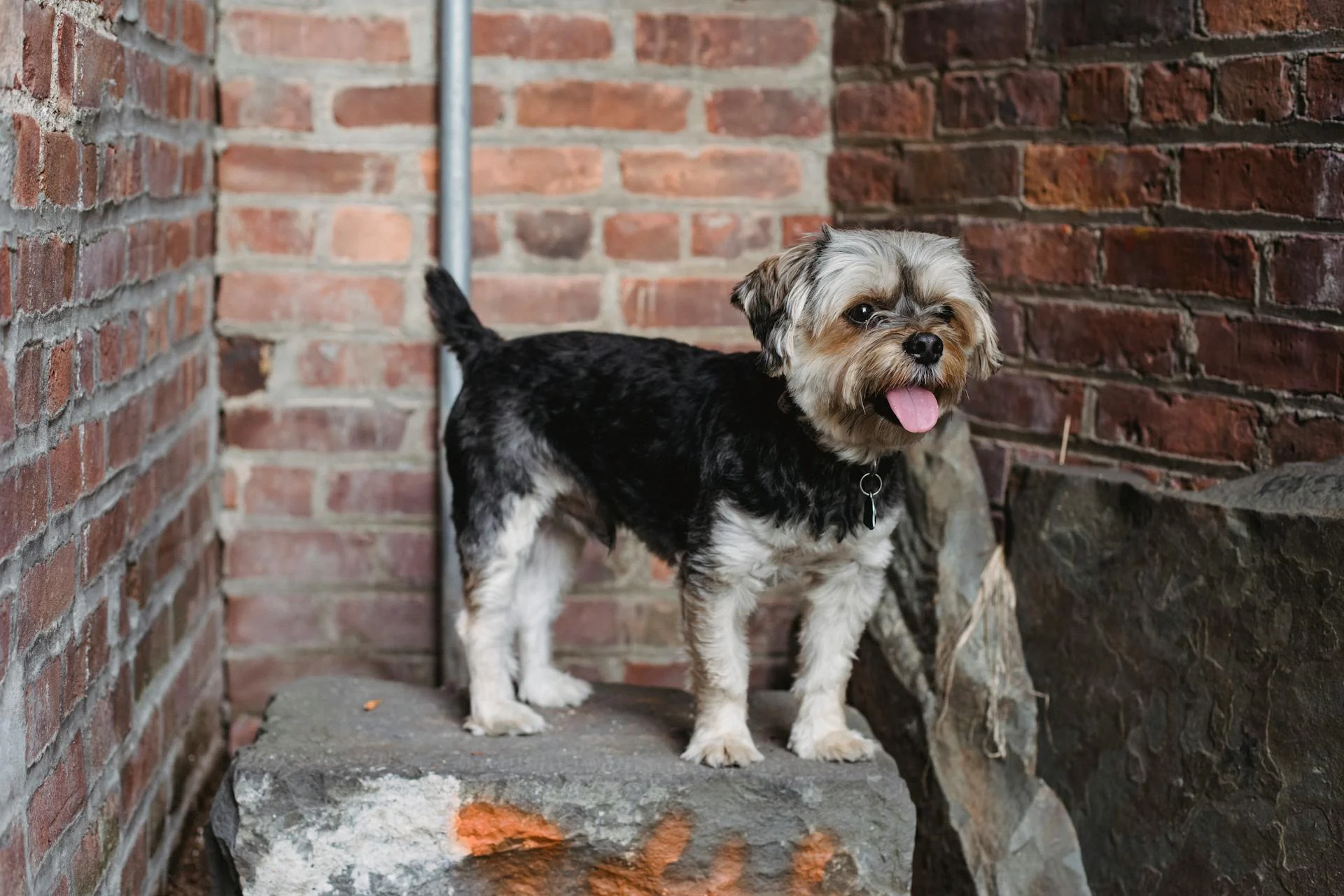
A Cotons' exercise needs are moderate, requiring about 30-40 minutes of moderate exercise each day. This can be divided into two shorter sessions, such as a 15-minute walk in the morning and one in the evening.
Games of fetch and other playtime are perfect for burning off energy and engaging your Cotons' minds. They love to be with their humans, so interactive playtime is a great way to spend quality time together.
Cotons can get bored easily, so it's essential to provide them with puzzle toys and keep them supplied with interactive dog toys. This will help occupy them when you don't have time to do the entertaining yourself.
Puppies need shorter, more frequent exercise sessions, and adult Cotons require about an hour of exercise per day, which can include morning and evening strolls. They also enjoy dog sports like obedience, rally, and agility.
Remember to adjust your exercise routine as your dog grows, and don't skip exercise whenever possible to prevent health issues.
See what others are reading: Best Time to Breed Dog in Heat
Training
Training your Coton de Tulear is a breeze, especially if you start early and use positive reinforcement methods.
Cotons are highly intelligent and trainable, which means they can learn agility and obedience skills with ease. They thrive on praise and rewards, making them a joy to train.
Socialization is key, so expose your Coton to different people, other dogs, and various locations from an early age to build their comfort and confidence. This will help them become charming and curious when meeting new people.
Cotons love treats, which makes training a snap. They'll quickly learn what behaviors you want to see and what you don't, and will adapt their behavior accordingly.
Consistent repetition and positive reinforcement are the keys to successful training. Ignore unwanted behaviors and reward desirable ones with treats, toys, and praise.
Don't worry if your Coton isn't the best watchdog - they may bark to alert you to things, but they're not naturally protective.
Here's an interesting read: Homemade Treats for French Bulldogs
A Long Average

The Coton de Tuléar is a great choice for a long-term companion, with an average lifespan of 14-16 years. This means you'll have plenty of time to enjoy the company of your dog.
Their longevity is likely due to their relatively low maintenance exercise needs, which can be met with regular walks and playtime.
Temperament and Environment
Cotons de Tulear are happy, easy-going, and lovable companions that thrive on human interaction. They're bred to be your canine BFFs and take that job seriously.
They're not yappy like some small dogs, but they will bark to let you know someone's at the door or in the yard. Cotons are way more bark than bite, and once they've told you company's arrived, they'll rush to be the first to welcome the newcomers with sweet, slobbery greetings.
These bubbly extroverts love meeting new people and get along well with other dogs and cats. If you can't be home most of the day, a pet sibling will soothe their loneliness and help prevent separation anxiety.
Cotons do best in households with a fenced yard where they can run and play, but they can also thrive in spacious apartments with plenty of room for them to speed around.
You might enjoy: Maltese Dogs Bark
Temperament
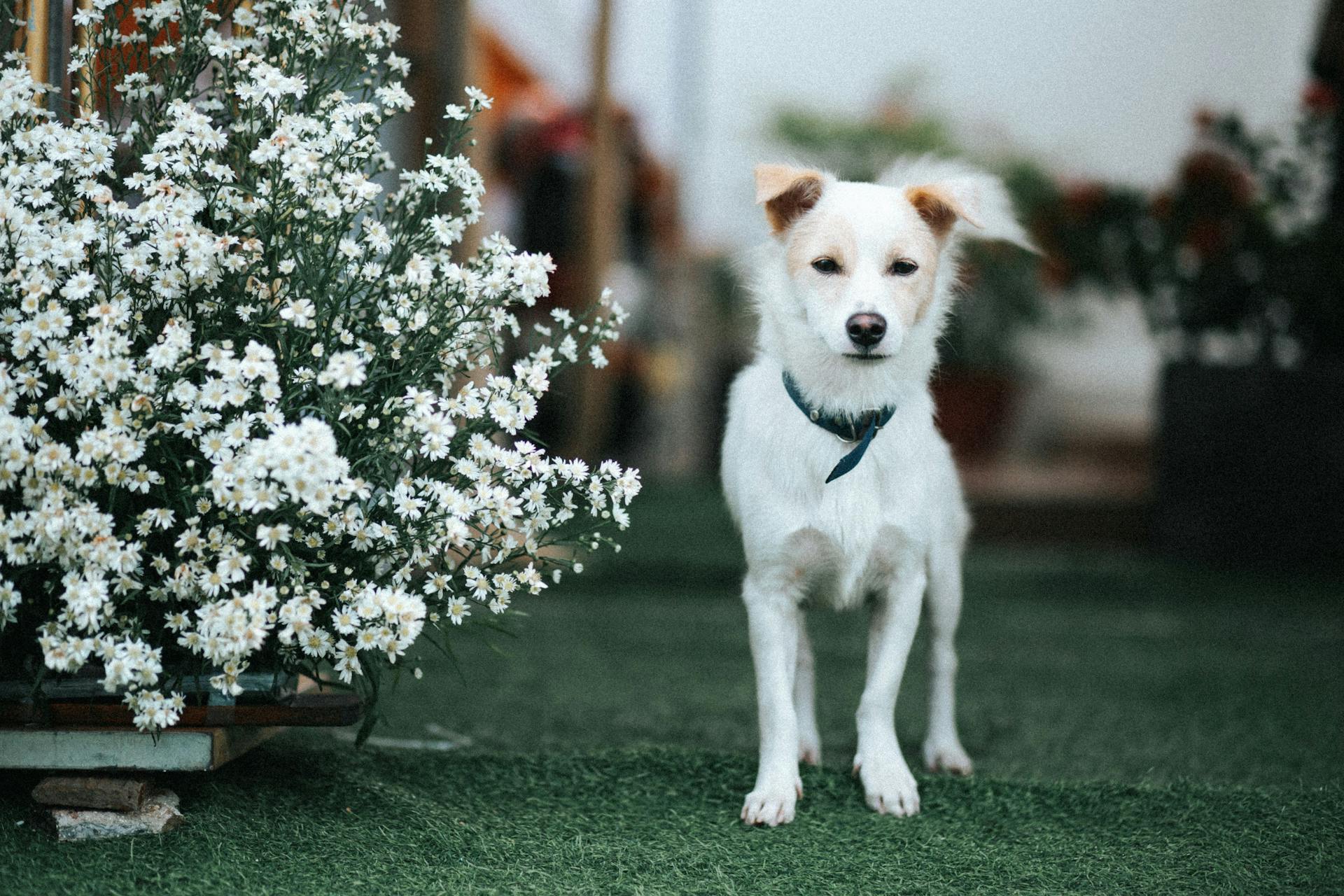
Cotons du Tulear are happy, easy-going and lovable dogs with a talent for charming people. They take being your canine BFF seriously and will keep your loneliness at bay.
Their comedic sense of timing and good humor make them a joy to be around. They even try to "talk" to you with their human-like vocalizations.
Cotons will bark to let you know someone's at the door or in the yard, but they're not yappy like some small dogs. They'll rush to be the first to welcome newcomers with sweet, slobbery greetings.
These bubbly extroverts love meeting new people and get along well with other dogs and cats. They're terrific family dogs that get along great with kids of all ages.
Their eagerness to please makes them obedient and easy to train. They also do well in agility and conformation sports.
Cotons have a lot of energy to burn, but they're not hyper, and it doesn't take much to tire them out. They're happiest just keeping you company and following you around all day.
A unique perspective: Are Maltese Dogs Easy to Train
Environment
Cotons thrive in households with pet siblings to keep them company. They're natural social butterflies who hate to be alone.
A fenced yard where they can run and play is ideal, but spacious apartments with plenty of room to speed around are a good alternative. As long as they get walked a couple of times a day, they can adapt to apartment living.
Cotons need a pet parent who isn't gone for long stretches and who is happy to have a little white puffball shadowing them around the house. They love to be the center of attention and will entertain your guests with their antics.
If you have a pool, you'll need to keep their hair cut short for their safety or keep them away from the water unless they have a dog life jacket and close supervision.
Adopting or Buying a Pet
If you're considering bringing a Coton de Tulear into your family, you'll want to explore your options for adoption or purchase carefully.
The cost of a puppy from a reputable breeder can range from $2,000 to $4,000, but it's worth noting that this can vary widely.
You should also consider checking local animal shelters and rescue groups for a dog in need of a home.
Here are some reputable organizations to look into: The United States Coton de Tulear ClubMadagascar Coton de Tulear Club of AmericaAmerican Coton Club
Frequently Asked Questions
What are the disadvantages of a Coton de Tulear?
The Coton de Tulear is a breed prone to certain health issues, including luxating patella, hip dysplasia, liver shunt, disc problems, and eye concerns. Potential owners should be aware of these potential disadvantages before deciding to bring a Coton de Tulear into their family.
Sources
- https://dogtime.com/dog-breeds/coton-de-tulear
- https://siccaro.com/blogs/news/everything-about-the-coton-de-tulear-and-why-its-so-loved
- https://www.thesprucepets.com/coton-de-tulear-dog-breed-profile-4771476
- https://be.chewy.com/dog-breed/coton-de-tulear/
- https://www.dogster.com/dog-breeds/coton-de-tulear
Featured Images: pexels.com
